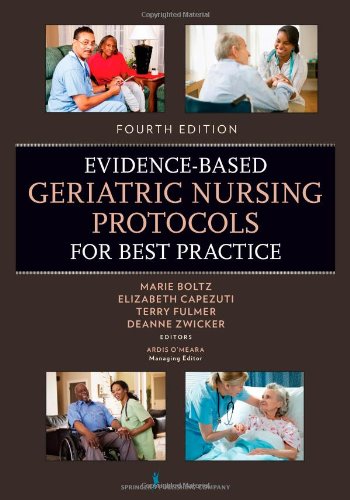

Most ebook files are in PDF format, so you can easily read them using various software such as Foxit Reader or directly on the Google Chrome browser.
Some ebook files are released by publishers in other formats such as .awz, .mobi, .epub, .fb2, etc. You may need to install specific software to read these formats on mobile/PC, such as Calibre.
Please read the tutorial at this link: https://ebookbell.com/faq
We offer FREE conversion to the popular formats you request; however, this may take some time. Therefore, right after payment, please email us, and we will try to provide the service as quickly as possible.
For some exceptional file formats or broken links (if any), please refrain from opening any disputes. Instead, email us first, and we will try to assist within a maximum of 6 hours.
EbookBell Team

4.1
80 reviewsNow more than ever, nurses are called upon to lead efforts to embed evidence-based practice in daily operations. As the IOM report states, 'nurses have key roles to play as team members and leaders for a reformed and better-integrated, patient-centered health care system.' The process of implementing sweeping change in health care will likely take years; however, nurses must start pragmatically and focus on these critically important protocols that have demonstrated improved outcomes for older adults. Simply stated, 'Pick this book up and use it.'
From the Foreword, Susan L. Carlson, MSN, APRN, ACNS-BC, GNP-BC,
FNGNA
President
National Gerontological Nursing Association
As a gerontological clinical educator/research nurse, I will often use this as a reference. The format and the content are good, and the explanations of how to best use the evidence simplify the process of sifting through mountains of information to figure the best practice. Score: 97, 5 stars
--Doody'sOne of the premier reference books for geriatric nurses in hospital, long-term, and community settings, this 4th edition has been thoroughly updated to provide the most current, evidence-based protocols for care of common clinical conditions and issues in elderly patients. Designed to improve the quality, outcomes, and cost-effectiveness of health care, these guidelines are the result of collaboration between leading practitioners and educators in geriatric nursing and New York University College of Nursing.
Protocols for each clinical condition have been developed by experts in that particular area, and most have been systematically tested by over 300 participating hospitals in Nurses Improving Care for Health System Elders (NICHE). Evidence is derived from all levels of care, including community, primary, and long-term care. A systematic method in compliance with the AGREE appraisal process was used to rate the levels of evidence for each protocol. Protocols are organized in a consistent format for ease of use, and each includes an overview, evidence-based assessment and intervention strategies, and an illustrative case study with discussion. Additionally, each protocol is embedded within chapter text, which provides the context and detailed evidence for the protocol. Each chapter contains resources for further study.
Key Features: